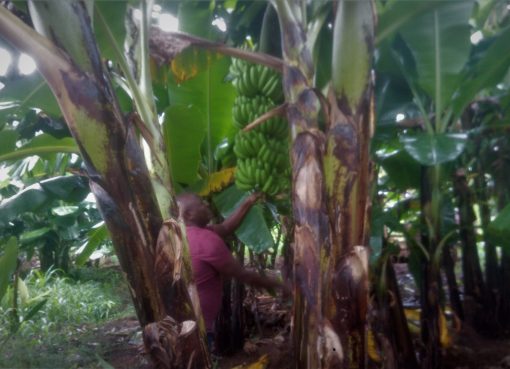The Ministry of Investment, Trade, and Industry inaugurated on Monday a new technical committee focused on establishing a sustainable mango product supply chain industry.
The committee’s formation follows a collaborative framework agreement signed between the Government of Kenya and Coca-Cola Central, East, and West Africa, along with Coca-Cola Beverages Kenya, during President Ruto’s state visit to Atlanta in May this year.
The newly established technical committee has been tasked with transforming the mango industry by exploring ways to enhance high-potential mango varieties throughout the entire value chain, from seed variety selection, planting, post-harvest handling, processing, and marketing.
The committee is also expected to deliver a comprehensive report with actionable recommendations to develop a sustainable and profitable mango supply chain in February next year.
Speaking in a meeting held in his office in Nairobi, Cabinet Secretary for Investment, Trade, and Industry Salim Mvurya noted that the partnership between Kenya and Coca-Cola is a significant opportunity that must be seized.
“The committee has a vital role in exploring sustainable methods of producing high-quality mangoes that meet international standards, facilitate market access, and promote aggregation for commercial scale,” Mvurya stated.
According to Mvurya, leveraging on existing ready markets negotiated through the regional communities such as the East African Community (EAC), Common Market for Eastern and Southern Africa (COMESA), Tripartite Free Trade Area (TFTA), and the African Continental Free Trade Area (ACFTA), enhances farmers’ empowerment through training, knowledge sharing, and promotion of cooperatives and other aggregation models.
He added that the framework will create economies of scale that will allow farmers to have bargaining power and ensure consistent and steady supply of the value chain throughout the year.
“Farmers need to be empowered to understand the requisite quality and standards required so as to link Kenyan mango farmers with local processing companies, as well as international buyers,” Mvurya said.
He went further to give an insight on the committee, which is expected to assess the impacts of seasonality and build a more predictable supply chain, which will enable better planning and investment in processing and export facilities.
“Mango farming has the potential to become a major economic driver for Kenya, transforming it from a seasonal fruit into a reliable cash crop that can support the livelihoods of thousands of farmers, create opportunities for employment, and in turn increase agricultural exports.’ CS Mvurya concluded.
By Sharon Atieno




